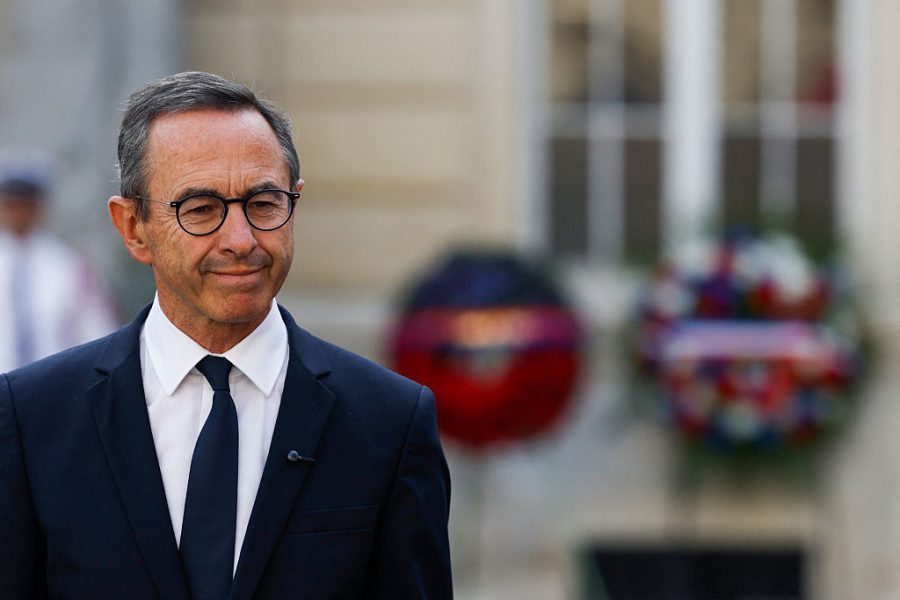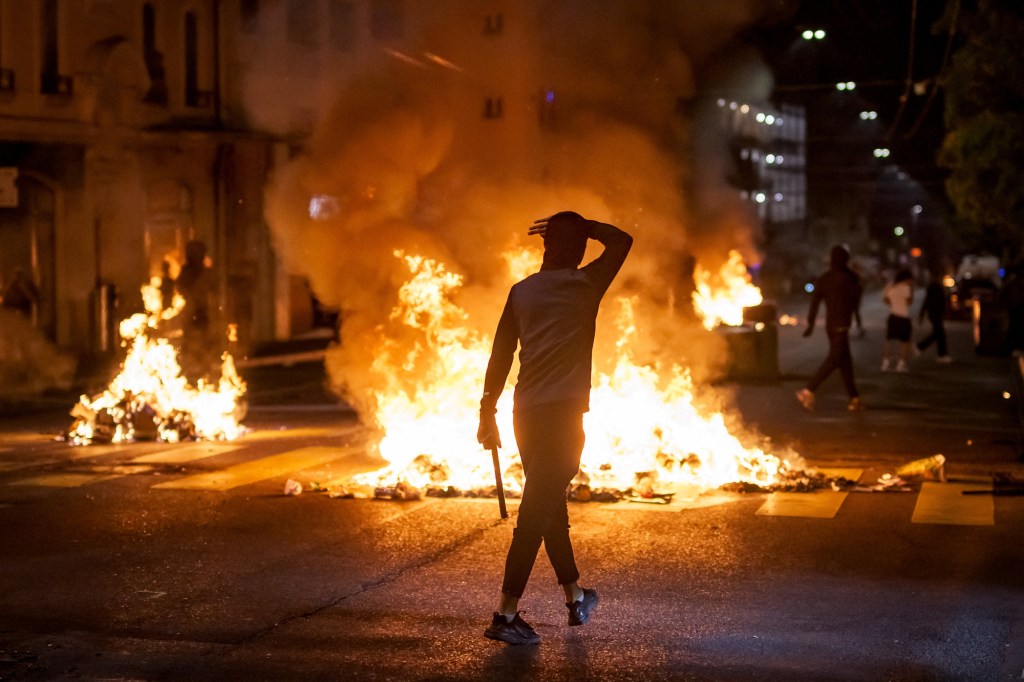The cynic might wonder if Keir Starmer and his government aren’t a little relieved that France is once more on the brink of political chaos. Now they have a convenient excuse for why waves of small boats continue to land on English beaches.
Starmer’s Gallic counterpart, Francis Bayrou, has called a vote of confidence in his government on 8 September. Lose and he will be out, and Emmanuel Macron will be searching for his fifth Prime Minister in 21 months.
A source in the British government has said that the turmoil in Paris could undermine the ‘one in, one out’ migrant treaty recently signed by the two countries. ‘We still hope they will operationalise it but it has become more difficult due to these developments,’ said the source.
It doesn’t matter who is in government in France because it is not ministers who make the policy
Since the treaty came into force three weeks ago, migrants have continued to leave France in vast numbers, sometimes under the watchful eye of the police. France’s Interior Minister, Bruno Retailleau, has authorised police to start intercepting migrant boats within 300 metres of the coast. However, according to a report in one French newspaper today, the navy ‘considers the manoeuvre too dangerous [and] refuses to get involved’.
Even if the French police and navy were more aggressive in controlling their coastline, the people smugglers would still send small boats across the Channel. They are operating from Ouistreham in the south to Dunkirk in the north, a 200-mile stretch of coastline that is impossible to keep under permanent surveillance.
The one in, one out treaty is little more than a gimmick, an attempt by the governments of Paris and London to hoodwink their electorates into believing they’re getting a grip on the crisis. They’re not. Starmer and Macron have always been merchants of free movement. They talk a good game about controlling borders, but that’s as far as it goes.
It is almost seven years since Macron outlined his vision for Europe in a speech at the Sorbonne. ‘We must create a common area of borders, asylum and migrations, to effectively control our borders,’ he declared. ‘Gradually establish European border police that ensure rigorous management of borders and the return of those who cannot stay.’
And what has happened since? France has experienced record levels of illegal and legal immigration, while the expulsion of foreign delinquents has dwindled to 7 per cent, compared to the EU average of 30 per cent.
Frankly, it doesn’t matter who is in government in France because it is not ministers who make the policy. It is the unelected members of the Constitutional Council and the Council of State, and they overwhelmingly lean to the left.
Last year the conservative magazine Valeurs Actuelles accused the Council of State of having been ‘infiltrated by the far-left’ and consequently of ‘handing down decisions that reveal its ideological infiltration’.
One of these decisions was when the Council of State ordered France to bring back an Uzbek national who had been deported in November 2023. Although France’s intelligence services suspected this Uzbek of Islamist radicalisation, the Council ruled that his life was in danger in his homeland. Retailleau referenced this case when he gave a speech in London this year. Addressing the Policy Exchange think tank, he cited it as an example of how ‘the law is turning against the law’.
Earlier this month Retailleau had a run-in with the Constitutional Council and its new president, Richard Ferrand, a former member of the Socialist party who was selected for the nine-year appointment by Macron. Ferrand’s predecessor was another Socialist, Laurent Fabius, prime minister of France under Francois Mitterrand.
Retailleau’s centre-right Republican party had passed a bill in parliament that extended the maximum length of stay in detention centres for foreigners considered a risk to the public. But the Constitutional Council didn’t approve of extending the stay from 90 to 210 days and struck down the bill. Retailleau expressed his ‘extreme concern’ at the ruling.
It’s not the first time Retailleau has clashed with the Constitutional Council. With the encouragement of Macron, they watered down an immigration bill tabled by Retailleau in 2023, and the following year they rejected his proposition to hold a referendum on immigration.
Retailleau has been the bete noire of the French left since 2021 when he declared that if France was serious about reducing immigration, it must temporarily leave the European Court of Human Rights (ECHR). This is heresy to Macron, who, like Starmer, is in thrall to the ECHR.
France began losing control of its borders in the 1970s as the radical left who had led the 1968 uprising came of age. Their long march through the institutions has left conservative ministers like Retailleau powerless. It has also rendered voiceless the majority of French people who regularly tell pollsters they want far less immigration.
The only way France will take back control of its borders is when it first takes back control from the unelected elite who have usurped power from politicians. As Retailleau said last year:
The rule of law is neither intangible nor sacred. It is a set of rules, a hierarchy of norms, judicial control, and separation of powers, but the source of the rule of law is democracy, it is the sovereign people.








Comments